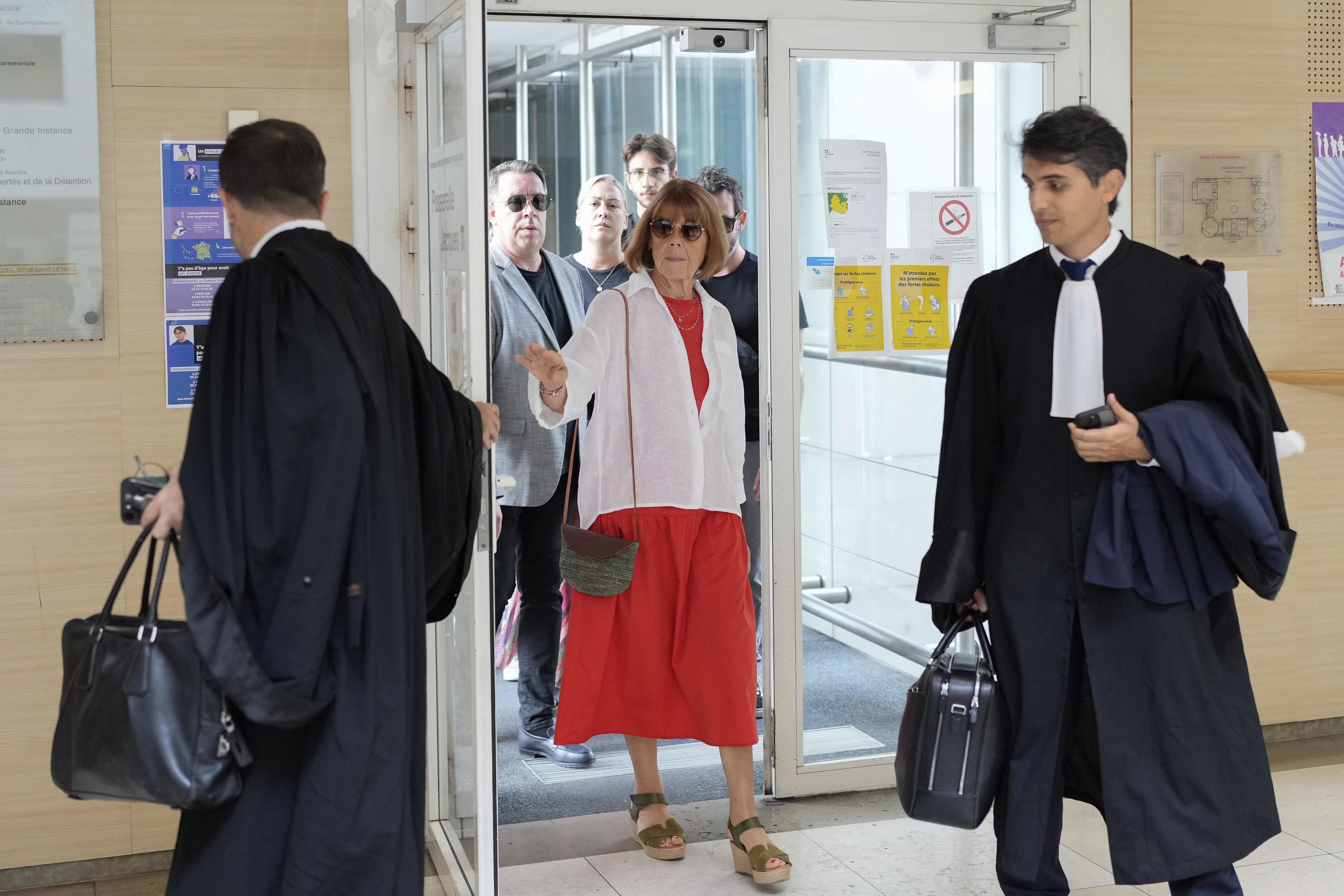"I want all of society to bear witness"... The words of Gisèle Pelicot resonated once again in Avignon, near the courthouse where the historic trial took place for four months, in the cloister of a 14th-century Carmelite convent transformed into a theater for a very special performance. "Let shame change sides!".
Procès Pelicot is the main attraction of this year at the Avignon Festival: a four-hour play condensed from the 600 hours of the famous trial, with the clear intention of putting all of society on trial, not just the French, represented by around five hundred spectators who witnessed and were part of the performance (streamed in cinemas and about to travel to Lisbon, Belgrade, and Warsaw after its premiere a month ago in Vienna).
Gisèle Pelicot, recently awarded the Legion of Honor and set to publish her autobiography A Hymn to Life in January, gave her approval to this theatrical version that has the simplicity and strength of a dramatized reading, with actors parading before a lectern and words resonating with all their overwhelming weight in the Romanesque cloister.
"We wanted to remove the case from collective memory and chose a sacred space as an allegory of the Via Crucis," warns Milo Rau, the Swiss author and director specialized in bringing historical trials to the stage, from Ceausescu to the Pussy Riot. Remaining silent about the Pelicot case would have been, in his opinion, a "complicit silence" as a citizen, comparable to staying silent about what is happening in Gaza or in Ukraine.
Rau collaborated at the Avignon Festival with the actress and playwright Servane Dècle, who emphasizes how Pelicot's "silent triumph" - beyond the 20-year sentence for her ex-husband and the convictions of the 50 men who raped and sexually abused her while she was drugged - has been precisely to turn the "shame" around, empower the victims, and turn the aggressors into a mirror of "the patriarchal and sexist society that trivializes rape".
An orderly, a journalist, several food deliverymen, a soldier, a prison guard... A sample of "ordinary" men, aged between 24 and 76, parade before the eyes of the spectators as representatives of that sordid microcosm of Mazan, the town of 6,000 souls at the foot of Mont Ventoux, which boasts one of the Marquis de Sade's castles ("cruel irony," in the words of Fabianne Dargue in Le Monde).
In 2013, Dominique and Gisèle Pelicot, retired by then (both worked for Électricité de France, she specialized in logistics management), arrived in that peaceful town. They lived comfortably in a large house with a pool, frequented by their children and grandchildren in the summer, like the typical middle-class family retired in the south of France.
In September 2020, Dominique was detained by supermarket security guards who discovered that he was filming under women's skirts with a mobile phone. This sparked the investigation that led to the seizure of his electronic devices and the discovery of a sinister folder named "Abuses", with images of his own wife abused by up to 70 men while she was drugged and seemingly unconscious.
"I do this for all the women who wake up in the morning with no memory of what happened the night before," proclaims Ariane Ascaride, one of the three actresses portraying Pelicot. "I do it not for myself, but for all the other victims"...
"From a sociological and psychological perspective, this case represents the omnipresence of patriarchy, and how rape culture infiltrates our lives, despite decades of campaigns and the impact of movements like #MeToo," assures director Milo Rau. "It's as if we're saying: we've shed some light on this issue, but there's another part that remains hidden, and that part hasn't changed."
That still somewhat hidden part is precisely what Procès Pelicot aims to illuminate, intending to somewhat turn the tables, in the words of Milo Rau himself: "The open trial turned the court into a theater, and now it's the theater that becomes a court."
Author Servane Dècle goes even further and draws a parallel between how "machismo and fascism go hand in hand today". "As men seek power through domination, fascism will continue to rise, and patriarchal society will continue to destroy lives," warns Dècle. "As an artist and activist, the Pelicot case touches on a fundamental point of our time: Gisèle is not just a victim, but a survivor of patriarchy, and she asks us to look at this trial and the world around her."
